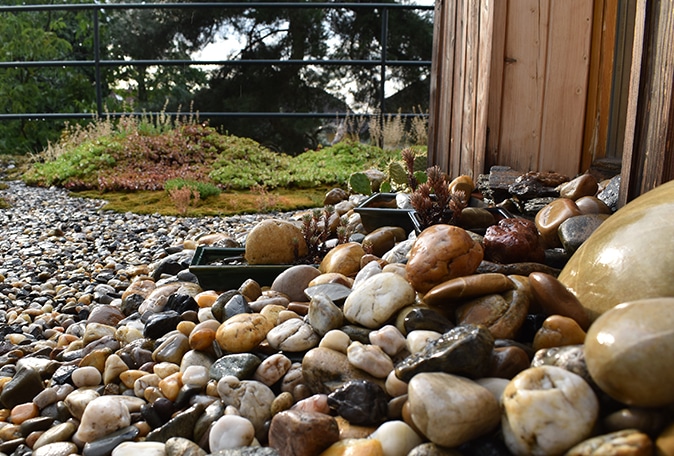Energy audits can reveal hidden savings, significantly reducing your bills and carbon footprint for a greener, cheaper home.
Have you ever wondered how to cut back on your energy bills and make your home more comfortable at the same time? An energy audit is your solution. This comprehensive assessment conducted by a professional auditor examines your home’s energy use, unearthing opportunities for improvement that you might have overlooked. By pinpointing areas of inefficiency—be it insulation gaps, outdated appliances, or poor ventilation systems—an energy audit reveals practical ways to cut costs, often by as much as 30%. Moreover, it aids in reducing your carbon footprint, thus contributing to the fight against climate change. It’s a win-win situation for you, your wallet, and the planet. Make the smart move; invest in an energy audit today.
Examples
1Building Envelope Inspection
Reviews the exterior of the home for leaks, cracks, or poor insulation.
2Infrared cameras to identify areas of heat loss
3Ductwork Analysis
Inspects HVAC ducts for leaks or inadequate insulation.
4Heating/Cooling System Inspection
Checks for efficiency of furnaces, air conditioners, and water heaters.
5Lighting Evaluation
Assesses energy efficiency of light fixtures and recommends upgrades if necessary.
6Appliance Assessment
Identifies energy-guzzling appliances and suggests more efficient alternatives.
7Blower Door Test
Measures air leakage by depressurizing the home and noting where air seeps in.
8Report Generation
Provides detailed findings and recommendations to improve energy efficiency.
Pros
- Cost Savings: Energy audits can identify improvements that result in substantial savings on utility bills, often up to 30%. These savings can, over time, offset the initial cost of the audit and any recommended improvements.
- Enhanced Comfort: By identifying and addressing drafts, insulation issues, and inefficient HVAC systems, audits can make your home more comfortable year-round.
- Environmental Impact: Audits aid in reducing your home’s carbon footprint by identifying and suggesting ways to minimize energy waste, contributing to the fight against climate change.
Cons
- Upfront Costs: Energy audits are an investment. The initial outlay can be a deterrent, although it’s worth noting that the long-term savings typically exceed this initial cost.
- Potential for Inconvenience: The audit process and subsequent repairs or improvements can be disruptive to normal home routines.
- Quality Variances: The effectiveness of an audit can depend on the auditor’s expertise. It’s important to select a certified professional to ensure accuracy and the best recommendations. In contrast, DIY energy checks are less effective, as they lack the detailed insight and expert knowledge a professional auditor provides.
Costs
1New Construction
Not applicable, as energy efficiency measures should be integrated into the design and build process.

2Existing Home - Hiring a Contractor
3Existing Home - DIY
The cost of a DIY energy audit can be quite minimal, mostly involving the price of a few tools like an infrared thermometer (around $20-$50) and a plug load monitor (around $25-$40). However, keep in mind that a DIY audit won’t be as comprehensive or accurate as a professional one.

Hiring Pros
- Search for Professionals: Start your search with trusted websites such as those found in our resources.
- Check Credentials: Make sure the auditor is certified by a recognized organization, like RESNET or the Building Performance Institute. Certification ensures that the auditor is knowledgeable and up-to-date with current best practices.
- Request a Detailed Report: A professional energy auditor should provide a comprehensive report outlining the audit findings and recommendations to improve energy efficiency.
- Ask for References: Request and contact previous clients to understand their experiences and gauge the auditor’s reliability and professionalism.
- Compare Quotes: Get quotes from different auditors to compare costs and services. Remember, the cheapest isn’t always the best – consider value over price.

Do It Yourself
- Educate Yourself: Start your search with trusted books & websites such as those found in our resources.
- Check Insulation: Evaluate the quality and amount of insulation in your attic, walls, and basement. Insufficient insulation often leads to heat loss.
- Inspect HVAC System: Regularly change or clean filters. Look for leaks in your ductwork that could lead to inefficient heating or cooling.
- Evaluate Doors and Windows: Check for drafts, air leaks, and poorly sealed or insulated frames which could lead to energy loss.
- Assess Lighting and Appliances: Consider switching to energy-efficient light bulbs and appliances. Energy Star-rated products can significantly reduce your energy usage.
Resources
Books:
Handbook of Energy Audits by Albert Thumann, Terry Niehus, William J. Younger.
Websites:
- Building Performance Institute (BPI): https://www.bpi.org/
- U.S. Department of Energy (DOE): Home Energy Assessments: https://www.energy.gov/energysaver/home-energy-assessments





